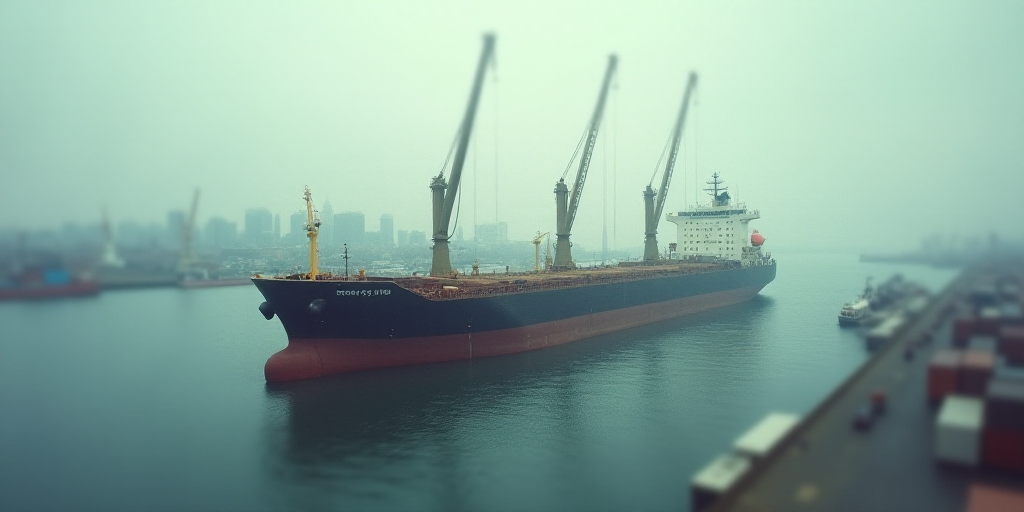Background on the Trade War and Key Players
The ongoing trade war between China and the United States has escalated tensions, with both nations imposing tariffs on each other’s goods. The conflict has disrupted trade, raising concerns about a global economic slowdown. Recently, China signaled its concern over the economic repercussions of this trade war by exempting some US imports from tariffs.
China’s Tariff Exemptions
According to businesses notified, China has exempted certain US imports from its 125% tariffs and is asking companies to identify critical goods that require no duties. This move represents the clearest sign yet of China’s worry about the economic consequences of the trade war.
The tariff exemption, following Washington’s de-escalation comments, indicates that the world’s two largest economies are willing to halt their conflict. The trade war had frozen most bilateral trade between them and sparked fears of a global recession.
Impact on Markets and Businesses
The tariff exemptions by China, which business groups hope will extend to numerous industries, caused a slight rise in the US dollar and lifted Hong Kong and Japanese stock markets.
“As a quid pro quo measure, this could be a way to ease tensions,” said Alfredo Montufar-Helu, an advisor at the Conference Board’s China Center, a research institution.
However, Montufar-Helu cautioned: “It’s clear that neither the EU nor China wants to be the first to reach an agreement.”
China’s Approach and Communication
Despite not publicly announcing any exemptions, China’s Politburo, the highest decision-making body of the Communist Party, has focused on maintaining stability by supporting affected businesses and workers through tariffs. The statement, released after the Politburo’s monthly meeting, showed that China was also willing to engage in a protracted trade war if necessary to withstand the pain of strained relations with Washington.
A trade ministry working group is compiling lists of items that could be tariff-free and requesting companies to submit their own applications, according to someone familiar with these efforts.
The trade ministry stated on Thursday that it had met with over 80 foreign companies and business associations in China to discuss the impact of US tariffs on investment and foreign businesses’ operations within the country.
“The Chinese government, for example, has been asking our companies what types of items they import from the US that cannot be found elsewhere and thus would close their supply chains,” said Michael Hart, president of the American Chamber of Commerce in China.
Hart added that some associated pharmaceutical companies reported they could import medicines to China without tariffs. He believes that the exemptions are specific to individual drugs, not the entire sector.
Industry-Specific Exemptions
The CEO of French aerospace engine manufacturer Safran announced on Friday that China had granted tariff exemptions for “a certain number of aerospace equipment parts,” including engines and landing gear.
The tariff exemptions under consideration in Beijing could provide cost relief for businesses in China and reduce pressure on US exports at a time when the Trump administration has shown interest in reaching an agreement with China.
The European Union Chamber of Commerce in China also stated that it had raised the issue of tariff exemptions with the Ministry of Commerce and was awaiting a response.
China’s customs agency and Ministry of Commerce did not respond to requests for comment. The Chinese Foreign Ministry said it was unaware of the tariff exemption plans and referred inquiries to “relevant authorities.”
Key Questions and Answers
- What is the main issue? The ongoing trade war between China and the United States, which has disrupted bilateral trade and raised concerns about a global economic slowdown.
- What actions has China taken? China has exempted some US imports from its 125% tariffs and is asking companies to identify critical goods that require no duties.
- How have businesses responded? Business groups hope these exemptions will extend to numerous industries, causing a slight rise in the US dollar and lifting Hong Kong and Japanese stock markets.
- What is the stance of both nations? Neither the EU nor China wants to be the first to reach an agreement, according to Alfredo Montufar-Helu, an advisor at the Conference Board’s China Center.
- What are industry-specific exemptions? Safran, a French aerospace engine manufacturer, reported that China granted tariff exemptions for “a certain number of aerospace equipment parts,” including engines and landing gear.






